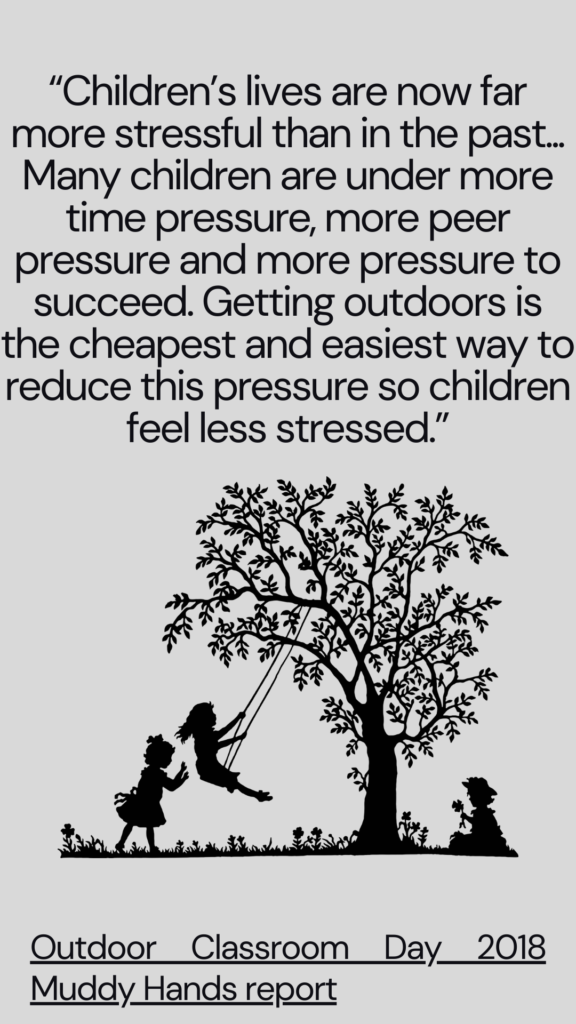The World Health Organisation reported that children who spend regular time outdoors are 55% less likely to develop mental health problems.
Research shows that being outdoors in nature can have a positive impact on children’s mental health and wellbeing. Likewise, a lack of being outdoors is suggested to lead to behavioural problems. Spending time outdoors can improve the mental health and wellbeing of babies, children and their family by improving mood, confidence and wellbeing. Being outdoors can be an enabling and motivational environment.
According to the Outdoor Classroom Day 2018 Muddy Hands report:

The current recommendation from The World Health Organisation, states that children under five should have at least three hours per day engaging in physical or outdoor play. Richard Louv, author of Last Child in the Woods, coined the phrase ‘nature-deficit disorder’ to describe the negative consequences to individual health as children have less and less physical contact with the natural world, and in particular just ‘being’ in nature.
Find some ideas for engaging babies and children with nature here:
You can read more reports and research about how being outdoors in nature can support SEMH needs here.






